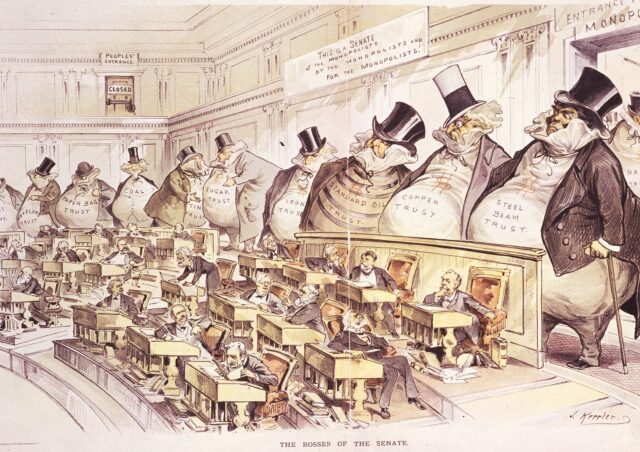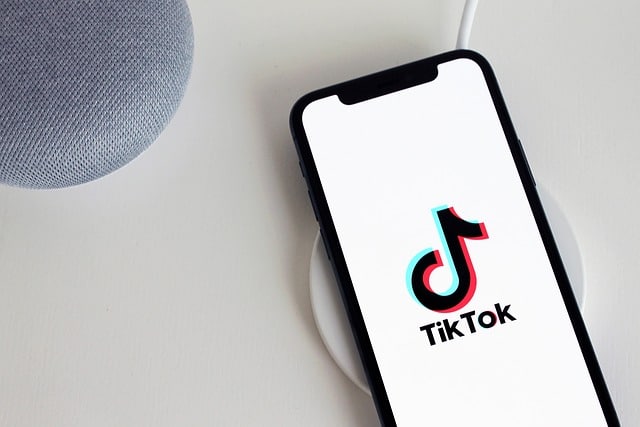Generations generally is a helpful mind-set about society, permitting us to hint social traits by way of the ages. However they’re additionally overly simplistic. Starting from earlier than the flip of the century, right here’s the historical past (and future) of America in ten generational stereotypes.
10. The Gilded Age

Although not often seen as a technology per se, the Gilded Age (1870s to Nineties) helps to make sense of the subsequent one. These had been the final of the pioneers, the top of the Wild West, with the oldest being 30 when the frontier was closed. They watched as their nation turned an industrial energy, and the richest had been identified for his or her extra. One infamous instance was the lavish masquerade ball thrown by socialite Alva Vanderbilt, spouse of railroad inheritor William Vanderbilt, in 1883. It price $240,000 in whole (the equal of $7 million in the present day), together with $11,000 on flowers, $65,000 on champagne and cigars, and over $150,000 on costumes.
After they weren’t spending their inherited fortunes, Gilded Agers exploited low cost labor—from kids to foreigners. They had been principally the form of robber baron industrialist epitomized by Scrooge McDuck.
However the industrialization of America additionally meant—as in China extra lately—a crackdown on private liberty. Gilded Agers noticed their nation’s founding ideas thrown out the window as the federal government turned extra controlling.
9. The Misplaced Era

Coming of age throughout or after World Battle One, the Misplaced Era (1883-1900) had been principally traumatized. They had been additionally alienated from the materialism of their mother and father, in addition to their conservative values. Like The Nice Gatsby, they noticed by way of the American Dream. Actually, a few of the most iconic members of this jazz age cohort rejected America altogether. Ernest Hemingway, Gertrude Stein, and T.S. Eliot all left the US for Europe. It was really in Paris that Stein coined the identify, having overheard a storage proprietor telling his younger worker “you’re all a misplaced technology.”
The stereotype of 1 born into the Misplaced is of a rootless, reckless wanderer. After the horrors of struggle, ethical propriety and social etiquette appeared to them hole and pointless. Conventional morality was deserted. Gender norms had been ignored. They drank, they divorced, they usually wrote about despair.
8. The Best Era

It was the NBC journalist Tom Brokaw who named this technology, writing in his e-book of the identical identify of their “towering achievement and modest demeanor,” calling them “the best technology any society has produced.” Born between 1901 and 1927, they got here of age through the Nice Despair or simply after World Battle Two—which meant they had been used to hardship. Many had been younger veterans, like J.F.Okay., who noticed their armed forces develop from being smaller than Portugal’s to being the biggest and most superior on the planet.
It was a technology of dwelling legends—Jackson Pollock, Ella Fitzgerald, Billie Vacation amongst them. They had been additionally a cohort of firsts, together with the primary black baseball participant and the primary inflow of girls into politics.
To image a stereotype of this technology, think about a G.I. coming dwelling from the Second World Battle and efficiently working for president.
7. The Silent Era

Taught to be seen and never heard, the Silent Era (1928-1945) had been by and huge conservative conformists—a minimum of in stereotype. Born too late to take part in World Battle Two and too early for the postwar increase, they’re often known as a technology of cautious laborious staff. They had been disciplined and dependable, had conventional values, and listened to Buddy Holly, Chuck Berry, huge band, and swing. In different phrases, they’re archetypical previous individuals.
Well-known members embrace Joe Biden, Martha Stewart, and Julie Andrews.
However stereotypes apart, it’s value mentioning the Silent Era’s rebellious streak—a literary subculture known as the Beat Era. Epitomized by the likes of Allen Ginsberg and Jack Kerouac, the beatniks listened to jazz, smoked weed, and challenged sexual taboos, paving the way in which for the hippies in a while.
6. Child Boomers

So-called for the surge in births after World Battle Two, Child Boomers are the one technology formally outlined by the Census Bureau. Like a large litter of puppies, they’re considered pushed and aggressive. Between 1946 and 1964, the US inhabitants elevated by greater than 50 %, forcing some areas to construct a faculty each month. This meant that for nearly 1 / 4 of a century (1959-1983), America had an unusually giant variety of youngsters. TV proliferated, as did in style music.
This was additionally the technology of civil unrest, hippies, and the Vietnam Battle. Then got here the ‘80s and the rise of the Boomers to positions of energy and wealth. Examples embrace the Clintons, George Bush, and Trump.
Because the previous people of our age, their opinions and values are typically dismissed—for instance on social media with the ‘OK Boomer’ meme.
5. Era X

Gen X (1965-1980) marked the beginning of the Massive Tech age, due to Child Boomers like Steve Jobs and Invoice Gates. However, as the youngsters of the ‘70s and ‘80s, Gen Xers nonetheless lived in a largely non-digital world. They bridged the hole between that world and ours. Because the novelist Douglas Coupland (who coined the identify for this cohort) put it, “as soon as we go, there’ll be no dwelling reminiscence of the analogue period.” On the similar time, although, he says he doesn’t need it again.
Sandwiched between the extra distinct and charismatic Boomers and Millennials, the stereotype for Gen X is the dearth of a stereotype, the dearth of a clearcut identification. They grew up by way of the ‘90s, labored in ‘McJobs’, and, just like the Misplaced Era earlier than them, valued journey and escape above all. Additionally they rejected materialism, embraced creativity, and lived for his or her loved-up weekends on rave medication like MDMA. Whereas the apathy of grunge sums up this technology, that they had but to depart the actual world for the online—a minimum of en masse. They nonetheless had one another, which is greater than we will say for…
4. Millennials

The Millennials, or Gen Y, are essentially the most stereotyped of all. Born between 1981 and 1996, they’re lazy, entitled digital natives obsessive about avocado on toast. Additionally they are likely to dislike authority. In contrast to earlier generations, they don’t want their elders and even one another to broaden their abilities and horizons. If there’s a niche of their information, they’ll repair it on-line. They’ll additionally decide up dates, stream leisure, purchase no matter they need, and attain superstardom all with out leaving the home—which, for an unusually giant chunk of their adulthoods, typically belonged to their mother and father.
A few of the most Millennial Millennials are Mark Zuckerberg (who reshaped the web), Taylor Swift (who discovered fame on-line), and Alexandria Ocasio-Cortez (whose liberal politics mirror these of her friends). Actually, Millennials had been the primary technology to not get extra conservative as they aged. Based on analysis from the US and UK, they had been the least conservative 35-year-olds ever.
However, regardless of their groupthink liberalism, they’re caught in a cycle of conceitedness and isolation because the loneliest technology thus far.
3. Gen Z

When Millennials had been children, the web was primary. Many nonetheless keep in mind the squeals and static of a 56k dial-up connection. Not so for Gen Z (1997-2012). After they had been in school, social media was already so prevalent {that a} quarter had been bullied on-line and AI was used to do homework. The web was their pure surroundings; they internalized it just like the air that they breathed. Therefore the stereotypes: attention-deficient, reading-averse, self-obsessed, and know-it-all. They’re additionally horrible staff. Based on analysts, they’re more likely to change jobs 18 occasions of their lives and alter their careers a minimum of six.
Well-known Gen Zers embrace MrBeast, Billie Eilish, and Jake Paul.
Their alternative of transport is a folding scooter, or a Tesla Mannequin S—whereas for Millennials it was a BMX or Prius. As an alternative of “bro,” “sick,” and “primary,” they are saying “fam,” “dank,” and “cheugy”—however largely they simply discuss in emojis.
2. Era Alpha

Era Alpha marks the start of a new naming system utilizing the Greek alphabet as an alternative of the Latin (X, Y, Z). They’re the primary to be born completely within the twenty first century (2010-2024) and lots of—greater than ever—will in all probability nonetheless be right here a century later. Largely the youngsters of Millennials, they had been (or nonetheless are) the “iPad infants,” pacified by tablets from infancy. Therefore their different identify, Era Glass.
Like Gen Z, they by no means knew an analog world. However, not like Gen Z, neither did the youngest know a world earlier than lockdowns. Regardless of, or due to, their techno-immersion, many select to spend time offline. They meet up with associates in the actual world, as an example, and greater than a 3rd of them learn. Additionally they like privateness and aren’t so hooked on social media as their mother and father and grandparents are.
Nonetheless, it’s early days but with the oldest being solely 14.
1. Era Beta

How do you stereotype a technology that has but to be born (2025-2039). You have a look at market projections. In spite of everything, cataloging individuals into clear generations is above all a advertising and marketing instrument.
Based on analysts, Betas would be the most coding-literate but, coming of an age in a society that depends on AI. However, with extra time to work on themselves and their initiatives, they’ll even be socially acutely aware—dedicated to ethics proper throughout the board. They’ll be extra eco-minded than any technology and will not forgive us for the harm. In different phrases, they’ll all be Greta Thunberg.
However it gained’t be all discuss. Betas will mark a shift “from the flexibility to know something to the flexibility to the flexibility to do something.” Therefore they’re also referred to as the Check Section Era.
Different Articles you May Like

